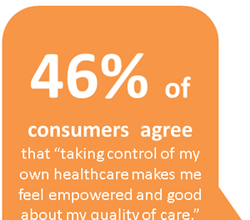 Two recent studies published in the current issue of Pediatrics focus on how parents come to a decision on vaccinating a child. The way a doctor broaches the subject with parents may be key to compliance, researchers found.
Two recent studies published in the current issue of Pediatrics focus on how parents come to a decision on vaccinating a child. The way a doctor broaches the subject with parents may be key to compliance, researchers found.
 Two recent studies published in the current issue of Pediatrics focus on how parents come to a decision on vaccinating a child. The way a doctor broaches the subject with parents may be key to compliance, researchers found. When a doctor simply presumes a child will get their shots, the parents are more likely to go along than if a doctor invites their participation in the decision. In a second study, a researcher discovered parents’ networks play an important role in decision-making. Simply put, parents are more likely to resist vaccinating their child if the people around them recommend such a course.
Two recent studies published in the current issue of Pediatrics focus on how parents come to a decision on vaccinating a child. The way a doctor broaches the subject with parents may be key to compliance, researchers found. When a doctor simply presumes a child will get their shots, the parents are more likely to go along than if a doctor invites their participation in the decision. In a second study, a researcher discovered parents’ networks play an important role in decision-making. Simply put, parents are more likely to resist vaccinating their child if the people around them recommend such a course.
“Parents’ immunization decisions are not always based on rational logic that incorporates scientific evidence,” David J. Opel, M.D., of the University of Washington School of Medicine, stated in commentary. “Rather, the cultural, emotional, political, and social context within which decisions are made may introduce substantial irrationality.”
Resistant to Request
For the first study, a team of researchers wanted to understand whether a provider’s communication style influenced parents’ decisions to vaccinate their children. They designed their study around parents of children between the ages of 1 and 19 months and then requested that they complete the Parent Attitudes about Childhood Vaccines survey, which rates the level of a parent’s reluctance around the issue. Next, the researchers analyzed 111 discussions that took place at nine separate practices with 16 total providers; an even half of all these conversations involved what the researchers termed ‘vaccine-hesitant parents’ or VHPs.
In nearly three-quarters of the videotaped sessions, providers initiated their vaccine recommendations in a presumptive manner by stating, for example, “We have to do some shots now.” The remaining providers chose a participatory style, asking the parents, “What do you want to do about shots?” No matter how the provider began the conversation, VHPs were more likely to resist than other parents — roughly 41 percent voiced some opposition — and VHPs were even more likely to resist, researchers found, when the provider used a participatory style rather than a presumptive style. The follow-up to nonconformity was important as well, the team of researchers discovered. About half of all providers who encountered a resistant parent pursued their original recommendation, making statements like, “He really needs these shots!” In such cases, almost half of the initially resistant parents accepted.
“Parents’ immunization decision-making is complex,” Opel succinctly noted in his commentary; the next study clearly substantiates his claim.
Social Networks
When it comes to deciding whether to vaccinate a child, parents rarely come to a conclusion on their own. Instead, Emily Brunson, Ph.D., Department of Anthropology, Texas State University, found that parents are heavily influenced by the people and sources they go to for information and advice. For her study, Brunson examined the way parents used their social networks when making a decision about vaccination, dividing parents into those who went along with the recommended vaccination schedule (conformers) and those who did not (nonconformers).
First, Brunson collected data via an online survey, which included a total of 126 conformers and 70 nonconformers. Her study was confined to King County, Washington, and all participants were U.S.-born, first-time parents with children under the age of 18 months. Although people networks were reported by 95 percent of parents in both groups, nonconformers were significantly more likely to report source networks (100 percent vs. 80 percent). Comparing parent, people, and source network, Brunson found people network variables were better predictors of parents’ vaccination choices than parents’ own characteristics or the characteristics of their source networks.
“In fact, the variable most predictive of parents’ vaccination decisions was the percent of parents’ people networks recommending nonconformity,” Brunson wrote. “These results strongly suggest that social networks, and particularly parents’ people networks, play an important role in parents’ vaccination decision-making.”
Together, then, both studies make a strong case for the personal element involved in the decision process. When all is said and done, the real people in our lives, whether that be the doctor in front of us or our family and friends, have greater impact than ‘virtual’ information or suggestions.
Sources: Opel DJ, Heritage J, Taylor J, et al. The Architecture of Provider-Parent Vaccine Discussions at Health Supervision Visits. Pediatrics. 2013.
Brunson EK. The Impact of Social Networks on Parents’ Vaccination Decisions. Pediatrics. 2013.
(Nevit, CC-BY-SA-3.0-migrated)









